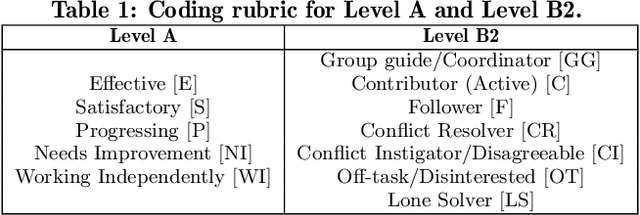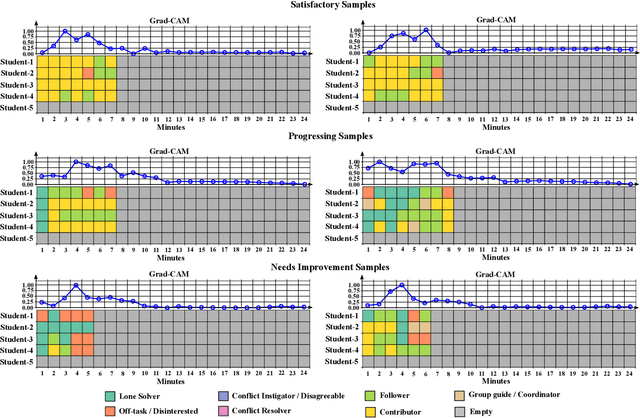Towards Explainable Student Group Collaboration Assessment Models Using Temporal Representations of Individual Student Roles
Paper and Code
Jun 17, 2021



Collaboration is identified as a required and necessary skill for students to be successful in the fields of Science, Technology, Engineering and Mathematics (STEM). However, due to growing student population and limited teaching staff it is difficult for teachers to provide constructive feedback and instill collaborative skills using instructional methods. Development of simple and easily explainable machine-learning-based automated systems can help address this problem. Improving upon our previous work, in this paper we propose using simple temporal-CNN deep-learning models to assess student group collaboration that take in temporal representations of individual student roles as input. We check the applicability of dynamically changing feature representations for student group collaboration assessment and how they impact the overall performance. We also use Grad-CAM visualizations to better understand and interpret the important temporal indices that led to the deep-learning model's decision.
 Add to Chrome
Add to Chrome Add to Firefox
Add to Firefox Add to Edge
Add to Edge